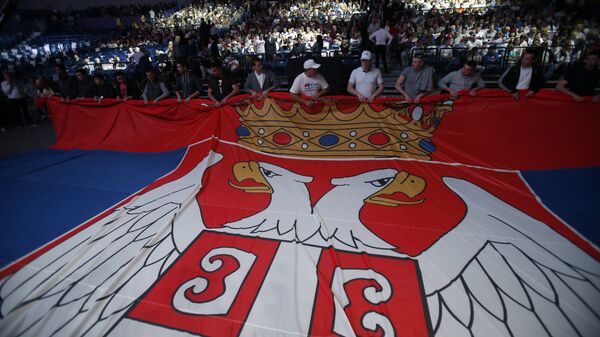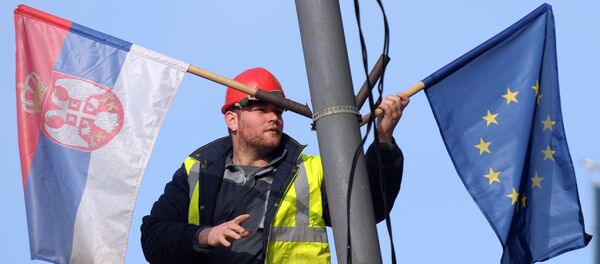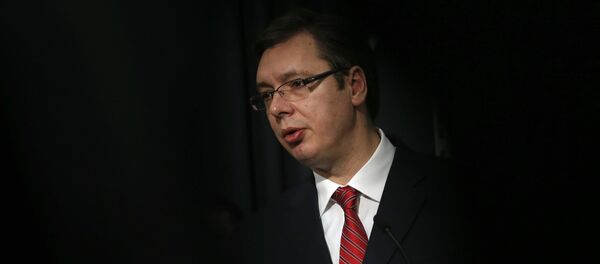"Moscow tries to exert massive influence on media, some politicians as well as civil society in Serbia. Russia is conducting a deliberate policy of destabilization in Serbia. That is a reason for great concern," McAllister said.
He added that taking into account all of the above Brussels should increase its engagement in Serbia’s politics and the live of the Serbian society.
According to Russian journalist and political commentator Ilya Kharlamov, the message of McAllister’s remarks is clear.
"They want to strip Moscow of its traditional zones of influence and friendly relations with regions historically, culturally and religiously close to Russia. Serbia is one of such countries," Kharalamov wrote in a piece for RIA Novosti.
According to Kharlamov, Belgrade’s official stance remains unchanged, including its non-aligned status, opposition to anti-Russian sanctions and intention to develop ties with Moscow.
"Russia and Serbia are actively building military-technical, economic and humanitarian cooperation. Belgrade regards ties with Moscow as priority. This is a headache for Brussels," the journalist pointed out.
Serbia has been an EU candidate state since 2012. Meanwhile, in 2014, Belgrade reached an agreement on strategic partnership with Moscow.
"The EU needs to find money for its foreign political program and explain its costs. This is why they’re making such loud statements. Of course, Moscow is Brussels’ rival in the Balkans. Serbia is Russia’s strategic partner. But this political, economic and diplomatic struggle extends back for several centuries," Safonov said.
He suggested that relations between Moscow and Belgrade will remain stable.
"Serbia is now playing a very smart long-term game, taking geopolitical advantage both from Russia and the EU. In this context, the Serbian government’s stance is praiseworthy in terms of its national interests. As for Moscow, it is comfortable with the status quo. On the other hand, electoral campaigns are underway in Serbia. Nevertheless, I think Moscow-Belgrade bilateral relations will be stable," the expert said.
Safonov added that it is premature to speculate about Serbia’s possible NATO membership.
"Belgrade is not going to join the alliance in the coming future. Maybe in 10-15 years, but we don’t know what role NATO will play in the future," he concluded.
Never miss a story again — sign up to our Telegram channel and we'll keep you up to speed!





